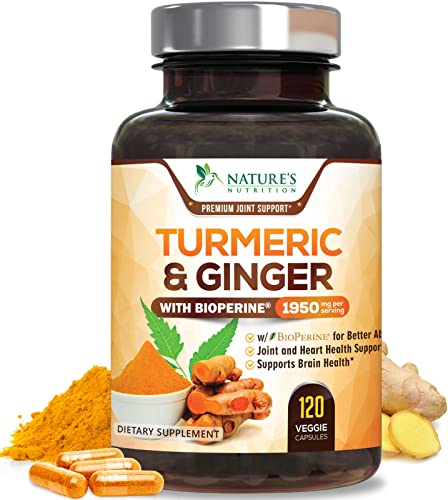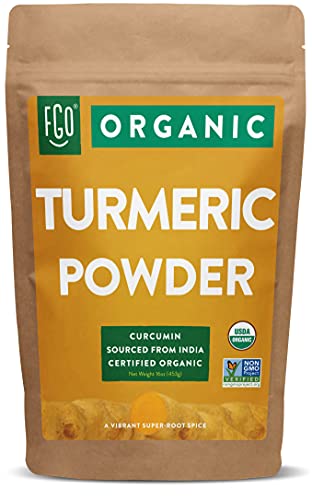Turmeric is a spice that has been used in Indian and Chinese cuisine for centuries. Turmeric is the main ingredient in curry powder and gives it its yellow color. Turmeric has a warm, bitter taste and is used to flavor or color food.
Overview
Turmeric is a member of the ginger family and is native to India and Indonesia. The roots or rhizomes of the plant are dried and ground to make the spice. Turmeric powder is used as a seasoning in many Asian dishes and curries. It is also used to give mustard its yellow color.
Turmeric has been used medicinally for thousands of years in China and India. It has been traditionally used to treat stomach upset, skin conditions, and infections. Turmeric is a powerful anti-inflammatory and antioxidant. It is being studied for its potential to help prevent or treat Alzheimer’s disease, cancer, and heart disease. Turmeric is available in capsules, tablets, and tinctures. It can also be used as a spice in cooking.
10 Best Turmeric Products
The Various Health Benefits of Turmeric
Turmeric contains curcumin, which is the active ingredient responsible for its health benefits. Curcumin has powerful anti-inflammatory and antioxidant effects, which can help to improve your overall health. It also seems to boost brain function and protect against Alzheimer’s disease. Turmeric is a great addition to your diet if you are looking to improve your overall health.
Turmeric as a supplement
Turmeric is a popular spice that has been used in Indian cuisine for centuries. It is also known for its medicinal properties and has been used in traditional Chinese medicine and Ayurveda for millennia.
Turmeric supplements are now available in capsule, tablet, or powder form and are often marketed as a natural way to improve overall health or relieve specific conditions.
-Turmeric supplements are generally safe when taken at recommended dosages. Side effects, if any, are typically mild and may include gastrointestinal upset or skin irritation.
-Turmeric supplements may interact with certain medications, so it is important to speak to a healthcare provider before taking them.
-Turmeric supplements should not be taken by pregnant or breastfeeding women.
-Turmeric supplements should be avoided by people with gallstones or bile duct obstruction.
When considering turmeric supplements, it is important to consult with a healthcare provider to determine the right dosage and formulation for your individual needs. Supplements are not regulated by the US Food and Drug Administration (FDA) in the same way as medications, so it is important to choose a reputable brand.
Be sure to read the label carefully to avoid products that contain fillers or other ingredients that you may be allergic to.
What is turmeric a good for?
Turmeric is a spice that has been used in Asia for thousands of years. It is a key ingredient in curry powder, and is what gives curry its characteristic yellow color. Turmeric has long been used as a medicinal herb, and recent scientific studies have shown that it has numerous health benefits.
Turmeric is a good source of antioxidants and anti-inflammatory compounds. These properties make it a useful herbal remedy for treating several conditions, including arthritis, inflammatory bowel disease, and Crohn’s disease. Some studies have also shown that turmeric may help improve cognitive function and memory. Additionally, some preliminary research suggests that turmeric may help protect against Alzheimer’s disease.
While more research is needed to confirm these potential health benefits, there is no doubt that turmeric is a powerful medicinal herb. If you are looking for an natural way to treat a health condition, consider using turmeric as a herbal remedy.
Turmeric benefits
Turmeric is a spice that has been used in India for centuries. It is a member of the ginger family and has a strong, earthy flavor. Turmeric is often used in curries and other Indian dishes.
Turmeric has many health benefits. It is a powerful anti-inflammatory and can help to reduce pain and swelling. Turmeric can also help to improve digestion and relieve gas and bloating. It is also believed to boost the immune system and protect against colds and flu. Turmeric is even said to help improve cognitive function and memory.
If you want to enjoy the health benefits of turmeric, try adding it to your diet in the form of powder, capsules, or tea. You can also find turmeric in many beauty products, as it is thought to help improve the complexion and give the skin a healthy glow.
Alzheimer’s
Turmeric has been shown to be effective in reducing the symptoms of Alzheimer’s disease. The spice contains curcumin, which is a powerful anti-inflammatory and antioxidant. Curcumin has been shown to reduce inflammation and oxidative stress, two major contributors to Alzheimer’s disease. Turmeric can be consumed in powder form, capsules, or tincture.
It is also available in topical form for those who prefer not to ingest it. Turmeric is generally safe for most people, but it can cause gastrointestinal upset in some individuals. If you are considering using turmeric for Alzheimer’s disease, speak with your healthcare provider first to ensure it is safe for you.
How to Incorporate into Your Diet
Turmeric can be used in both savory and sweet dishes. It can be added to curries, rice dishes, soups, and stews. It is also often used as a seasoning for roasted vegetables. You can also try adding it to smoothies or juices, or using it as a natural food coloring. Turmeric is a great way to add flavor and health benefits to your diet!
Recipes Featuring Turmeric
Turmeric can be used in a variety of recipes to add flavor and health benefits. Try adding it to curries, rice dishes, soups, stews, smoothies, or juices. You can also use it as a natural food coloring in recipes. Below are some recipes that feature turmeric:
1. Curried Cauliflower Soup with Turmeric
2. Roasted Carrots with Turmeric and Honey
4. Turmeric Rice
5. Turmeric Tea
Is it good to take turmeric everyday?
There are many possible health benefits associated with turmeric, and as a result, some people may choose to take it every day. Some of the potential benefits of turmeric include reducing inflammation, improving cognitive function, and helping to prevent cancer.
While there is some evidence to support these claims, more research is needed to confirm them. Additionally, taking large doses of turmeric may cause side effects such as stomach upset and diarrhea. Therefore, it is to speak with a healthcare provider before starting any supplement regimen.
How much turmeric should you take a day?
Turmeric is a popular spice that has been used in India for centuries. It is made from the dried root of the Curcuma longa plant and has a distinctive yellow color. Turmeric is often used in curry dishes, but it can also be found in many other foods, including mustard and baked goods.
Turmeric has been shown to have numerous health benefits, including reducing inflammation, boosting cognitive function, and protecting against heart disease. It is also a powerful antioxidant.
So how much turmeric should you take a day to experience these benefits? The amount of turmeric you need to take depends on several factors, including your age, weight, and health condition.
The general recommended dose is 1-3 grams per day. However, if you are pregnant or have a medical condition, it is best to talk to your doctor before taking turmeric supplements.
Turmeric is a safe spice to consume, but it is important to talk to your doctor if you have any concerns. Taking too much turmeric can lead to side effects such as an upset stomach or skin irritation. If you experience any adverse effects, stop taking the supplement and talk to your doctor.
Does turmeric reduce inflammation?
Turmeric is a popular spice that has been used in traditional medicine for centuries. Curcumin, the active ingredient in turmeric, is thought to have anti-inflammatory properties. A growing body of research suggests that curcumin may help to reduce inflammation in a variety of conditions, including arthritis, inflammatory bowel disease, and psoriasis.
While more research is needed to confirm these potential benefits, there is some evidence that curcumin may be an effective anti-inflammatory agent. If you’re considering using turmeric to reduce inflammation, talk to your healthcare provider first to discuss whether it’s right for you.
Who should not use turmeric?
Turmeric is generally safe to use, but there are a few groups of people who should avoid it. These include pregnant women, those with gallbladder problems, and those taking blood-thinning medication. Turmeric can also interfere with the absorption of some medications, so it’s important to talk to your doctor if you’re considering adding it to your diet.
What are the negative effects of turmeric?
Turmeric is a popular spice, used in many Indian dishes. It has also been traditionally used as a medicinal herb. Turmeric contains curcumin, a substance with powerful anti-inflammatory and antioxidant properties.
Recent studies have shown that turmeric may help improve several health conditions, including arthritis, diabetes, and cancer. However, there is also some evidence that it may have negative effects.
Turmeric may increase the risk of bleeding and should be used with caution in people who are taking blood-thinning medications. It may also interfere with the absorption of iron and other minerals.
People with gallbladder problems should avoid using turmeric supplements, as they can worsen these conditions. Additionally, pregnant women and those who are breastfeeding should avoid using turmeric, as it may stimulate contractions and lead to miscarriage.
Turmeric is generally safe to consume in small amounts, but it is important to speak to a healthcare provider before taking it if you have any underlying health conditions.
How long does it take for turmeric to work?
Turmeric is a popular spice that has been used in Asia for centuries. It is now gaining popularity in the Western world as well, thanks to its many health benefits. But how long does it take for turmeric to work?
The answer may depend on what you are taking turmeric for. If you are using it to improve your overall health, then you may start to see benefits within a few weeks or months. However, if you are taking turmeric for a specific health condition, such as arthritis, it may take longer to see results. Clinical studies have shown that turmeric can be effective in treating arthritis, but it may take up to three months to see a noticeable difference.
In general, though, most people seem to tolerate turmeric well and don’t experience any side effects. So if you’re looking for a safe and natural way to improve your health, give turmeric a try.
Does turmeric help you sleep?
Turmeric is a popular spice used in many cuisines, but it also has a number of potential health benefits. Some people believe that turmeric can help improve sleep quality, but there is limited scientific evidence to support this claim.
A small study published in 2014 found that taking a turmeric supplement before bedtime improved sleep quality in people with insomnia. However, the study was very small and more research is needed to confirm these results.
It’s important to note that turmeric is generally safe when taken in small amounts, but it can cause side effects like stomach upset and diarrhea if taken in large doses. If you’re considering using turmeric to help with sleep, be sure to talk to your doctor first.
Conclusion
Turmeric is a yellow-colored spice with powerful medicinal properties. It has been used to treat various ailments for centuries.
The active ingredient in turmeric, curcumin, has powerful anti-inflammatory and antioxidant effects. It also seems to boost brain function and protect against Alzheimer’s disease.
These health benefits make turmeric a great addition to your diet. Try adding it to soups, stews, curries, smoothies, or juices. You can also use it as a natural food coloring in recipes. incorporating turmeric into your diet is a great way to improve your overall health.













